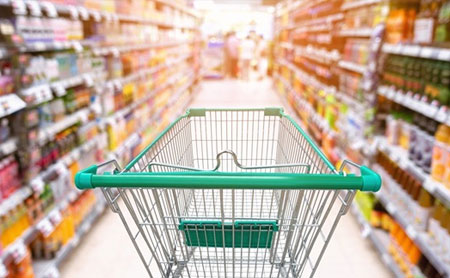Picture: 123RF/muliko
Constrained consumers versus insulated spenders: the pandemic is driving change in the way products will be consumed from now on
New research suggests consumers are redesigning their product choices and many pandemic consumption patterns are now set to become entrenched essential routines.
Kelly Arnold, Nielsen Retail Intelligence MD for Sub-Saharan Africa, says: "Since the onset of the Covid-19 pandemic, many consumers have found themselves in a radically adjusted financial position, with 41% of South Africans saying they have been personally impacted by job losses under the lockdown.
"These massive and sudden shifts in unemployment rates are among the many factors driving the declining spending power of numerous South Africans. The new Nielsen ‘Covid-19 Behavioural Reset Report’ identifies key behavioural changes which make sense of today’s fundamentally altered shopping landscape as they apply to two distinct types of consumers: constrained consumers who are stretched financially due to factors such as job losses and compressed income; and insulated spenders who have managed to retain their job and therefore sustained their income."
The report says that as more and more consumers become unable to maintain their peak Covid-19 spending levels, the consideration set for what is "essential" will shrink. This cautiousness will affect where and how households stock their pantries and shelves.
Says Arnold: "What’s clear is that the [home-based] economy is here to stay. Within that, the constrained consumer will seek out self-fulfilment of needs, limit their exposure to price increases and look for cost savings, whereas for insulated spenders this means creative exploration and trying new products."
Overall, consumers continue to prioritise in-home spend, with spending on food and beverages being maintained or even increased compared to the end of 2019.
This is borne out by 79% of SA shoppers who say they bought treats or indulgent categories, with the top three product types being juice, carbonated soft drinks and chocolates. "Consumers still want to find enjoyment in life, and we anticipate that they will reimagine the role that certain goods and services play in their routines," says Arnold.
"For constrained consumers, it could be something as simple as a box of biscuits. For insulated consumers, there is more discretionary spending."
Nielsen says there has been a sharp increase in the popularity of private-label products.
Jason Stewart, co-founder of marketing agency HaveYouHeard, agrees that consumer behaviour has changed and brands need to be more agile. "When it comes to adapting to the evolving needs of the consumer, rather than take kneejerk decisions and make reactive adjustments, brands need to make smart choices that consider short-, medium-and long-term strategic views.
"It is critical that their acceptance of and reaction to the new normal is tempered with an understanding that far-reaching and very strict restrictions forced the adoption of new behaviour, accelerated the growth or demise of certain services, and opened up people to risk-taking or experimentation."
Article Source: https://www.businesslive.co.za/redzone/news-insights/2020-10-08-shopping-trends-how-covid-changed-spending/





